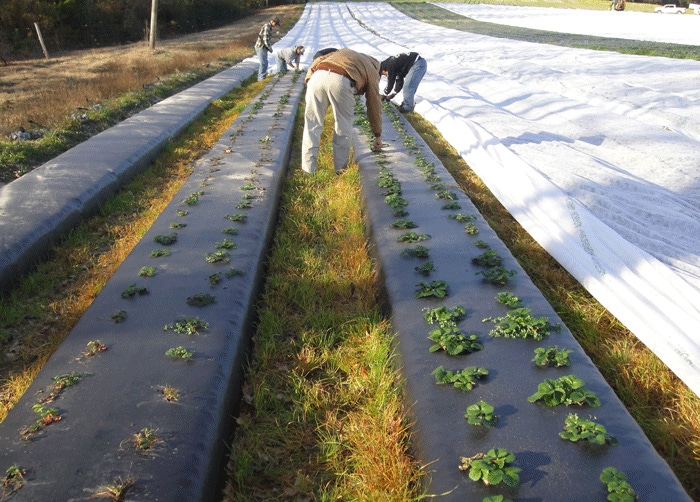
Immigration reform takes spotlight
• On Monday (Jan. 28), a bipartisan group of eight senators offered proposals to deal with the estimated 11 million illegal immigrants in the country.• President Obama will present his own proposals on Tuesday and a group in the House is expected to offer its own ideas soon after.

Leaders in the House and Senate are vowing that immigration reform will take a large portion of the legislative spotlight this year.
On Monday (Jan. 28), a bipartisan group of eight senators offered proposals to deal with the estimated 11 million illegal immigrants in the country. President Obama will present his own proposals on Tuesday and a group in the House is expected to offer its own ideas soon after.
Under the Senate plan, the 11 million would be brought into the legal fold once back taxes and a fines are paid. However, though legal, they would not be able to gain full U.S. citizenship until borders are secure and systems are in place to ensure employers don’t hire an illegal worker. Who will verify that borders are secure, and how that security will be determined, is yet to be hashed out.
The impetus for reform comes after a handful of alarming developments in 2012. For agriculture, those include crops left to rot in fields for lack of picking crews after several states in the Southeast passed laws aimed to curtail illegal immigration.
Perhaps more pressing for lawmakers is long-term Republican Party viability following a national election where some 70 percent of Latino voters voted for President Obama.
Whether the shifting demographics in the country are enough of a push for the GOP to take action is still unknown — especially considering the manner similar reform efforts in 2007 and 2010 were doomed with concerns over illegal immigrants gaining “amnesty.”
The “no amnesty” killing stroke for reform legislation in recent years – prompted by a controversial 1986 law that legalized millions of illegal immigrants — was acknowledged by Arizona Sen. John McCain on Monday. The current approach by the Senate would not repeat “the mistakes of 1986,” said McCain.
For agriculture, the need for immigration reform has been too long in coming.
National Farmers Union, “is very pleased to see that the bipartisan group of Senators came together and recognized that immigration is such an important issue for this Congress,” says Chandler Goule, NFU vice-president of Government Affairs. “We’re also pleased to see the group specified and identified agriculture as a unique sector that not only relies on immigrant labor but will be significantly impacted in a proper manner.
Looking for good reform
“We look forward to working with the Senate to make sure we get a good reform and immigration policy in place. At the same time, we must maintain a labor workforce in order to continue to have productive agriculture system.”
Kristi Boswell, American Farm Bureau Federation (AFBF) director of Congressional Relations, is, “encouraged by the Senate process and appreciate they recognize agriculture’s unique needs.”
In 2012, the AFBF began formulating its own labor plan and recruited other farm-friendly groups to the cause.
“For too long, we have dealt with the shortcomings of a broken farm labor system,” said Bob Stallman, AFBF president at the organization’s annual meeting in January. “The results have been labor shortages, lost crops and bureaucratic nightmares. … This year, we will offer a reasonable, practical and common-sense farm labor option that works for growers and workers alike.”
Last November, Boswell told Farm Press that the AFBF, “has worked over the past year to find a solution that works for all of agriculture. (We’ve looked for) something that works for a small grower in California and a dairy farmer in upstate New York.
“As components of that, we must address the long-term and a transitionary, short-term period. Part of the long-term is a new agricultural worker program that mimics the domestic workforce allowing growers to offer contracts and hire at-will. It also is a more market-based and flexible program in regard to labor standards and distinguishing factors from the H-2A program.
“It is not an H-2A reform but remedies the failings of H-2A. We feel it will be a better alternative to the H-2A program.”
In the short-term, said Boswell, “we recognize there is a large percentage of our workforce that is here falsely documented. We must have a transition period and a workforce that can pass an E-Verify test while implementing the agricultural worker program.”
The AFBF has proposed work authorization for “a limited population of key workers that have agricultural experience and will continue to work in agriculture to remain in status on what we call an ‘ag card.’”
Boswell envisions the card would be biometric and carried to prove work authorization. “This would not be an H-2A reform but a new program. It would remedy the failings of H-2A and provide more flexibility than the H-2A program provides.”
Is the “ag card” still a possibility under the Senate group’s proposal?
“Absolutely,” says Boswell. “The summary (of the Senate proposal) made the point that the current agricultural workforce needs an incentive to stay in ag and an expedited path. It also recognizes the need for an agricultural worker program that works into the future and really addresses agriculture’s needs.
“The devil’s in the details, of course. We’re working extensively with (California Sen. Diane Feinstein and Florida Sen. Mark Rubio) to put the pieces of that together and what the details of that will look like.”
When might that be prepared? Weeks or months?
“I don’t know of an exact time frame but very, very soon,” says Boswell. “We’re working as fast as we can (on the agriculture side). Others are working on other specific areas (in immigration reform).”
About the Author(s)
You May Also Like





